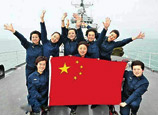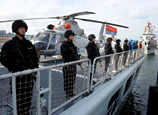
The war on terror has forced the United States to pay more attention to its relations with other major powers such as China. China-U.S. relations have since improved, and the two countries have established stable coordination mechanisms in many fields. This has consolidated the general upward trend of their bilateral relations, and laid a solid foundation for the establishment of a new type of great power relations between the two countries. They have made concerted efforts to create a win-win situation.
Now, 10 years after the Iraq War started, the United States is shifting its strategic focus eastward, leading to growing tensions around China. Frequent disputes have occurred in the South China Sea and East China Sea, and North Korea’s nuclear test has further increased tensions in East Asia. Under such circumstances, other countries have made various predictions on China’s diplomacy.
The key to predicting China’s diplomacy lies in realizing the country’s firm adherence to the path of peaceful development. China will not change its strategic choice simply because of external changes, and will try its best to remove obstacles to peaceful development and play a more active role in handling international affairs as a responsible major power. Today’s China has greater strength to stick to this path, and any country that fails to take China’s adherence seriously is bound to make wrong predictions.
Read the Chinese version: 预测中国外交的关键, source: People's Daily

















 Auto-chat app sparks social skills concern: A littile yellow chicken can talk, really?
Auto-chat app sparks social skills concern: A littile yellow chicken can talk, really?


![]()
